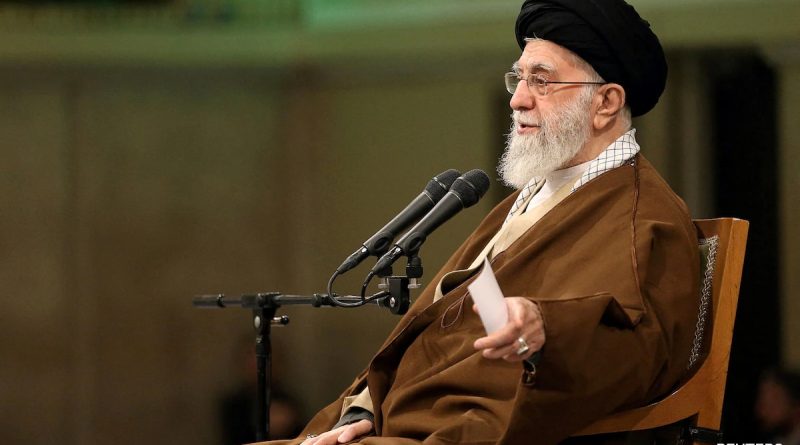Some governments continue to insist on negotiations despite bullying tactics: Khamenei responds to Trump’s threats
Ayatollah Ali Khamenei Slams Bullying Tactics and Refuses Negotiations with US
In a recent development, Iran’s supreme leader Ayatollah Ali Khamenei criticized what he described as bullying tactics, particularly in the context of US President Donald Trump’s recent threat of military action against Iran. Khamenei’s remarks came in response to Trump’s ultimatum for Iran to engage in talks over its nuclear program or face potential military intervention.
Bullying Tactics and Domination
During a meeting with officials, Khamenei expressed his disdain for what he referred to as “bully governments” who insist on negotiations with Iran. He emphasized that such negotiations are often aimed at domination rather than genuine problem-solving. Khamenei denounced the coercive tactics employed by certain foreign leaders and highlighted the disparity in expectations between Iran and its adversaries.
Maximum Pressure and Nuclear Deal
Trump’s reiteration of the “maximum pressure” policy on Iran, which involves stringent economic sanctions and the withdrawal from the Iran nuclear accord (JCPOA), has further strained relations between the two countries. The JCPOA, signed in 2015, offered Iran relief from sanctions in exchange for limitations on its nuclear activities. However, Trump’s administration’s decision to abandon the agreement has escalated tensions and prompted Iran to reassess its commitments.
European Diplomatic Efforts
Despite engaging in diplomatic efforts with European countries like Britain, France, and Germany to address concerns regarding its nuclear ambitions, Iran has faced criticism for allegedly failing to uphold its commitments under the JCPOA. Khamenei, in response to this criticism, questioned the European nations’ own adherence to the agreement and highlighted the need for reciprocal accountability.
Peaceful Nuclear Program
Iran has consistently maintained that its nuclear program is peaceful and in compliance with religious edicts prohibiting the development of nuclear weapons. Khamenei’s firm stance against negotiations with the US, coupled with his denunciation of Trump’s approach to international agreements, underscores Iran’s commitment to its sovereign decision-making and rejection of external pressure.
Future Prospects and Challenges
As the standoff between Iran and the US persists, the prospect of renewed dialogue remains uncertain. Khamenei’s reluctance to engage in talks with the US, coupled with Iran’s strategic maneuvers in response to escalating tensions, underscores the complexities of international relations in the Middle East. The path forward for both countries is fraught with challenges and uncertainties, as they navigate a volatile geopolitical landscape.
In conclusion, Ayatollah Ali Khamenei’s recent remarks serve as a reminder of Iran’s unwavering stance against external coercion and its commitment to upholding its national interests. The ongoing tensions between Iran and the US underscore the need for diplomatic engagement and constructive dialogue to address mutual concerns and avoid further escalation of hostilities.

